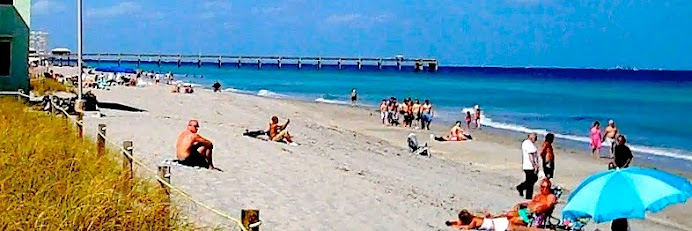Dr. Jane Lubchenco was nominated by President Elect Barak Obama as the Administrator of NOAA, the National Oceanic and Atmospheric Administration, which is devoted to conserving marine and coastal resources and monitoring weather. Obama said "as an internationally known environmental scientist, ecologist and former President of the American Association for the Advancement of Science, Jane has advised the President and Congress on scientific matters, and I am confident she will provide passionate and dedicated leadership at NOAA."
Thus begins a new phase in marine and coastal policy.
For me as a professor of coastal policy and for my students around the world this appointment is interesting for several reasons.
First, this appointment once again emphasizes the importance of politics in the design and conduct of marine and coastal policy. As we know from foreign policy, a president can profoundly influence the shape and nature of policymaking with the choices of leaders.
Second, both President Obama and Dr. Lubchenco understand the significance of many of the issues my students and I deal with on a day-to-day basis:
reducing overfishing, eliminate destructive methods for fishing, slowing down and reversing the overall polluting of the coastal areas and oceans, halting the acidification of oceans, smart-planning in future coastal construction, working with agriculture and other sectors in greatly cutting back on nitrate pollution and the resulting "Dead Zones", addressing the impact of climate change (especially warming of ocean temperatures) on reefs and other marine life.This greater knowledge and empathy for the marine environment makes it much more likely that we will be investing in more aggressive science and policy implementation to reverse the destructive impact of human activity on fragile coastal and ocean ecosystems.
Third, I strongly believe that this national emphasis will have consequences at the state, country and local levels in terms of more emphasis on protection, preservation, conservation, and remediation of the coastal zone in all of AMERICA'S COASTAL STATES.
Fourth, this renewed vigor will produce new and exciting job and career opportunities for my students at all levels of government but also with private consulting and engineering firms that work with coastal infrastructure and coastal environments.
Fifth and finally, this renewed US energy and emphasis on oceans and coasts will inevitably trigger more interest and more action across the globe. International coastal zone science and management should gradually see a sharp increase in emphasis as well as funding and career opportunities. This is a very crucial moment for American scientists and institutions to increase their contacts and partnerships with colleagues, students, and institutions in other countries in the areas of marine and coastal research and education.
I have prepared and sent President elect Obama whom I met during the Iowa Caucus activities in the hectic primary season of 2007, a short briefing paper on coastal policy. I hope and assume that some of my specific suggestions will work their way into the Obama administration and NOAA agenda for the next eight years.
This is without a doubt a critically important and also more optimistic time for all of us concerned about and working on improving life by the sea, on the sea, and under the sea.
